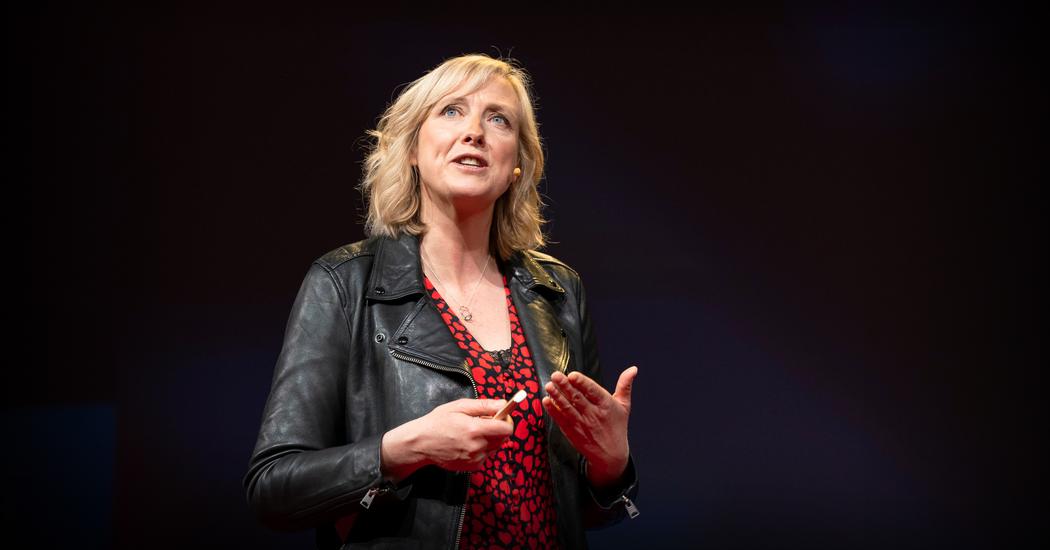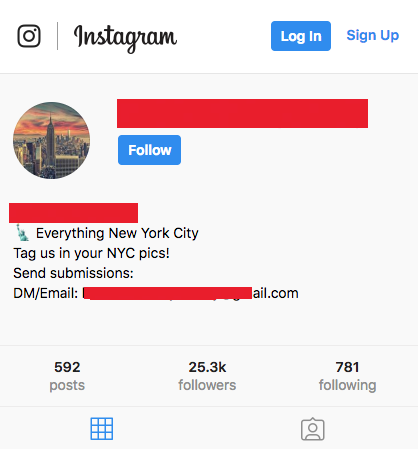
Living the dream? On one hand this is a clever way to game Instagram. On the other hand, social networks are supposed to be about being social with other people so bots like this make it a less social environment. (I've also thought that hashtags in text are machine garbage that make things less human so I'm an outlier.) And businesses just blindly handing out gifts to antisocial media accounts? What? This whole article is an exquisite mess.

I have to link to this excellent reporting by Casey Newton. This is an important article that shows the human cost of maintaining large centralized social networks. I think it also reveals a sick society where people are constantly uploading psychologically scarring material that other people then have to sift through. I felt like Facebook's response was weak—at some point the we're growing too fast to keep up and we're so new at this doesn't work. As Bloomberg points out, companies have always said artificial intelligence is just around the corner to save the day. I think that's why companies view human moderators as a failure of technology rather than a key piece of their success. Matt Haughey ran an indie corner of the open internet for years and knows Content moderation has no easy answers. Just because it's hard doesn't mean we shouldn't hold Facebook accountable. They made decisions that created this problem and it's a shameful aspect of the internet we need to fix.
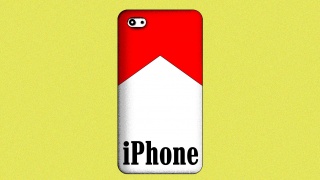
Speaking of digital habits, Cal Newport has a new book called Digital Minimalism. This GQ interview has some great gems on the rise of social media, like this: "It took this careful attention engineering, and cultural engineering, to try to make this seem innovative, and high-tech, and like you had to be doing this. If that falls apart, the whole thing goes." Ezra Klein also recently had him on his podcast: Cal Newport has an answer for digital burnout.
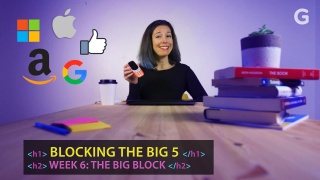
I never get tired of these stories where people change their digital habits. This piece by Kashmir Hill is an extreme example, but also a good illustration of how ubiquitous the major tech companies are. Understanding the often hidden architecture of our tech environment helps us make mindful decisions. A couple other posts in this genre I've enjoyed lately: Bye, Bye, Google by Bogdan Popa and Pulling the plug on Facebook by Drupal founder Dries Buytaert.
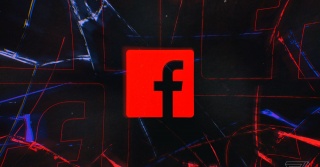
Not following the daily long scream of social media news? This article is a good way to catch up on the fresh horrors. Facebook is really leading the way in ethical absence:
- TechCrunch: Facebook pays teens to install VPN that spies on them
- Mashable: Facebook employees react to scandal on gossip app
- ProPublica: Facebook Moves to Block Ad Transparency Tools — Including Ours
This really rang true for me, especially: "I don’t sit there and think about what other people might think about what I’m writing — just the person who emailed me. To me, this is closer to what true friendship is like." I feel like we've collectively forgotten what private one-on-one relationships are.
My Year in Social Media
Last year around this time I talked about trying to stop contributing to corporate social media: Facebook-Free in Twenty Eightee-n. That went ok. I stopped using Instagram altogether. I posted three pictures to Facebook in 2018. I deleted my Twitter account in August (Twitter Breakup) and then went back and claimed my username so it couldn't be used for evil. (I got my username back too late to save the 11-year archive which is mildly annoying—but also ok.) And I do still read Twitter ocassionally through a significantly smaller window. I didn't post to Flickr at all. (That might change now that they're under new ownership.)
So that's some kind of progress. How is my current relationship with social media? To put it in meme terms:
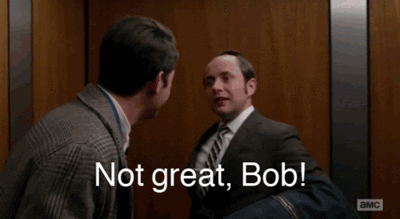
Leaving social media does not make it go away. If you work on the web in any capacity (I do), the big sites like Facebook, Twitter, and Google are omnipresent. It seemed like each week of 2018 brought a new jaw-dropping revelation of Facebook mismanagement. Google leaked user data, hid it, and employees were in the streets asking for fair working conditions. Twitter is a platform for Nazis because they incentivize engagement above all things and do not adequately handle abuse. I agree with Anand Giridharadas who posted this Twitter thread: "Trying to fight a predatory, politically connected monopoly through heroic personal responsibility doesn't work." We need regulation.
So that's depressing! I wouldn't call it heroic responsibility, but I did change my online habits quite a bit in 2018. I now read and post social messages via Mastodon which is a distributed kinder, gentler Twitter. I wish more people would make the switch so I could close my Twitter reading window altogether. I stopped posting photos online which is something I used to enjoy. I'll make an effort to post them here more frequently.
In October I did start posting more frequently to this site which means I also started paying more attention to my site metrics. Last week I made a snarky post about Google Analytics which was my poor way of processing this. I deleted it because the fact is, Google Analytics is a necessary tool if you work on the web. Necessary, but I don't like the way it turns people into numbers. So that's a tension I'm trying to live with and the answer might be that I shouldn't use web marketing tools for personal projects. I'd like to have a way to know if what I'm writing here is being read and resonating, but not if it means getting alerts and notifications that traffic is dropping, engagement is lower, and people are bouncing away forever. There has to be a more humane way to visualize and engage with web audiences.
My wish for social media in 2019 is for new leadership at all of the major web companies. I don't think we'll ever see them disappear, nationalized, or regulated in a meaningful way. I'd like them to have a less central role in how we create and share online. I think some new leaders could steer the companies away from growth-at-all-costs toward a more ethical relationship with users. I'd like to see them usher in the era of maintenance! That's where they take the amazing tools they've built and optimize them to work within society.
So that's some kind of progress. How is my current relationship with social media? To put it in meme terms:

Leaving social media does not make it go away. If you work on the web in any capacity (I do), the big sites like Facebook, Twitter, and Google are omnipresent. It seemed like each week of 2018 brought a new jaw-dropping revelation of Facebook mismanagement. Google leaked user data, hid it, and employees were in the streets asking for fair working conditions. Twitter is a platform for Nazis because they incentivize engagement above all things and do not adequately handle abuse. I agree with Anand Giridharadas who posted this Twitter thread: "Trying to fight a predatory, politically connected monopoly through heroic personal responsibility doesn't work." We need regulation.
So that's depressing! I wouldn't call it heroic responsibility, but I did change my online habits quite a bit in 2018. I now read and post social messages via Mastodon which is a distributed kinder, gentler Twitter. I wish more people would make the switch so I could close my Twitter reading window altogether. I stopped posting photos online which is something I used to enjoy. I'll make an effort to post them here more frequently.
In October I did start posting more frequently to this site which means I also started paying more attention to my site metrics. Last week I made a snarky post about Google Analytics which was my poor way of processing this. I deleted it because the fact is, Google Analytics is a necessary tool if you work on the web. Necessary, but I don't like the way it turns people into numbers. So that's a tension I'm trying to live with and the answer might be that I shouldn't use web marketing tools for personal projects. I'd like to have a way to know if what I'm writing here is being read and resonating, but not if it means getting alerts and notifications that traffic is dropping, engagement is lower, and people are bouncing away forever. There has to be a more humane way to visualize and engage with web audiences.
My wish for social media in 2019 is for new leadership at all of the major web companies. I don't think we'll ever see them disappear, nationalized, or regulated in a meaningful way. I'd like them to have a less central role in how we create and share online. I think some new leaders could steer the companies away from growth-at-all-costs toward a more ethical relationship with users. I'd like to see them usher in the era of maintenance! That's where they take the amazing tools they've built and optimize them to work within society.
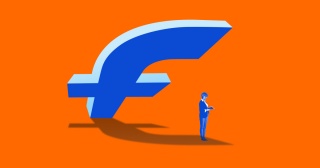
This is a good summary of the twists and turns in the Facebook saga. What makes this article interesting to me is that Mother Jones discusses their own relationship with Facebook over the years. Facebook sent them lots of traffic at the height of "Facebook as news feed" and they profited from it. This kind of symbiotic media relationship is a big part of the Facebook story but most media outlets don't want to discuss it. For example see: CBC's longstanding tech columnist condemns the broadcaster's cozy relationship with Facebook. Companies are still driving traffic to Facebook every day by encouraging their users to connect and subscribe via Facebook. Those solicitations are an endorsement of Facebook. We should discuss this part of the system.
If you missed the fallout from the latest revelations about Facebook, Jason Kottke has a good summary. Hiring a PR firm to create fake news to smear critics does transcend merely awful and puts them into the truly evil category. They made it! With all of this pressure to improve, Facebook feels like they're at war, but Josh Marshall asks: Who is Facebook at war with? Gina Bianchini thinks we'll see a renaissance in smaller social media because The Facebook Era is Over. I want to believe! (Maybe we'll all start blogging at LinkedIn instead?)
Facebook-Free in Twenty Eightee-n
My growing sense of dread about the corporate social media networks that dominate the modern web has prompted twin 2018 resolutions: 1.) Do not contribute content directly to social media networks owned by corporations. 2.) Break the daily habit of consuming information directly from Facebook and Twitter.
I feel like I need to do some extra work to find new ways to connect with people. I think Jason Kottke is on the right track with his new newsletter, Noticing. (And I can't believe I'm saying this as someone who has always had a strong preference for web over email.) I do enjoy seeing personal updates from friends on Facebook, but there's a lot of garbage you have to take in with it. A little rancid meat can really ruin a milkshake. So what if we all had personal email newsletters and we could just enjoy each other's updates with no garbage mixed in?
Keeping up with thoughts and ideas from folks in my industry is trickier. Twitter works well for that. It's just that in addition to jokes and news you also need to take in heaping piles of garbage while feeling complicit in advancing the Earth toward its final days. I shouldn't have to feel terrible to connect with friends and peers. I'm staying away from Twitter to see if I can find other ways to connect. Ways like visiting websites directly and subscribing to newsletters. I think Twitter the company is making terrible decisions and I don't want to feel like I'm contributing to their network growing in any way. My only option is to stop feeding it attention and jokes.
Breaking my daily Twitter and Facebook habit has been easier than I expected. I uninstalled the apps from my phone some time ago but I was still visiting and posting in a web browser. Simply logging out of these services is enough of a speedbump to remind me that I don't want to be there. The habit tries, but little speedbumps are enough to stop it. I've also made Kindle my go-to app for wasting time with my phone. If I need a break or need to kill some time I'll read a book instead.
As far as sharing thoughts, links, and photos I'll still be posting here but not at Facebook, Twitter, Instagram, or Flickr. I'll probably start a mailing list with family news for friends. I'm hoping all of this will help me find ways to stay connected with people I care about without a publicly traded intermediary. That was the promise of the Web in the first place and it's not working out. With some exploration and work maybe we can route around the web behemoths.
Want to connect with me outside of Facebook or Twitter? I still use email. (Though I'm still bad at it.)
Here are a few links I've been thinking about:
I feel like I need to do some extra work to find new ways to connect with people. I think Jason Kottke is on the right track with his new newsletter, Noticing. (And I can't believe I'm saying this as someone who has always had a strong preference for web over email.) I do enjoy seeing personal updates from friends on Facebook, but there's a lot of garbage you have to take in with it. A little rancid meat can really ruin a milkshake. So what if we all had personal email newsletters and we could just enjoy each other's updates with no garbage mixed in?
Keeping up with thoughts and ideas from folks in my industry is trickier. Twitter works well for that. It's just that in addition to jokes and news you also need to take in heaping piles of garbage while feeling complicit in advancing the Earth toward its final days. I shouldn't have to feel terrible to connect with friends and peers. I'm staying away from Twitter to see if I can find other ways to connect. Ways like visiting websites directly and subscribing to newsletters. I think Twitter the company is making terrible decisions and I don't want to feel like I'm contributing to their network growing in any way. My only option is to stop feeding it attention and jokes.
Breaking my daily Twitter and Facebook habit has been easier than I expected. I uninstalled the apps from my phone some time ago but I was still visiting and posting in a web browser. Simply logging out of these services is enough of a speedbump to remind me that I don't want to be there. The habit tries, but little speedbumps are enough to stop it. I've also made Kindle my go-to app for wasting time with my phone. If I need a break or need to kill some time I'll read a book instead.
As far as sharing thoughts, links, and photos I'll still be posting here but not at Facebook, Twitter, Instagram, or Flickr. I'll probably start a mailing list with family news for friends. I'm hoping all of this will help me find ways to stay connected with people I care about without a publicly traded intermediary. That was the promise of the Web in the first place and it's not working out. With some exploration and work maybe we can route around the web behemoths.
Want to connect with me outside of Facebook or Twitter? I still use email. (Though I'm still bad at it.)
Here are a few links I've been thinking about:
- Ezra Klein Show: Cal Newport on taking your life back from technology - Klein interviews the author of Deep Work
- Mashable: Stop reading what Facebook tells you to read
- The Verge: The year we wanted the internet to be smaller
- Rick Webb: My Internet Mea Culpa
- Mike Monteiro: Jack Dorsey’s Resignation Letter to Twitter
- Twitter: World Leaders on Twitter - tl;dr: folks with an outsized impact on society can ignore our terms of service.
Saturday Links
Bleak edition.
Puerto Rico
- CNN: San Juan mayor: 'Dammit, this is not a good news story'
- James Fallows: From Donald Trump, a New Low
- Time: How to Help Puerto Rico: 12 Effective Ways to Donate Money
Facebook
- The Guardian: Facebook's war on free will
- New York Times: Zuckerberg’s Preposterous Defense of Facebook
- Washington Post: Russian operatives used Facebook ads to exploit America’s racial and religious divisions
- BuzzFeed: Mark Zuckerberg Can’t Stop You From Reading This Because The Algorithms Have Already Won
Twitter
- Bloomberg: What Is Trump Worth to Twitter? One Analyst Estimates $2 Billion
- John Warren Hanawalt: If Twitter won’t #BanTrump, it’s time to #DeleteTwitter.
- New York Times: Senator Berates Twitter Over ‘Inadequate’ Inquiry Into Russian Meddling
- Be Nice To Bears: Twitter Adds 280 Characters
NFL
- Eric Reid: Why Colin Kaepernick and I Decided to Take a Knee
- CNN: Bob Costas: 'Preposterous' to say criticism of NFL kneeling protests not tied to race
- Business Insider: Gregg Popovich says the US has become 'an embarrassment to the world' in speech slamming Trump and white privilege
- MTV: Black Flag: On the History of the American Flag in Black Protest Art
Web Design
- Logo Crunch - helps lower the resolution of images for favicons, app icons, etc.
- Data Viz Project - a collection of data visualization types.
- AtF Spark - sparklines font.
- Before and After: Why Animal Shelters Need Good Photographers
- Accessibility for Everyone by Laura Kalbag - new from A Book Apart
Multifarious
- The Atlantic: My 150 Writing Mentors and Me
- Erin Kissane: Writing Well about Terrible People
- Why Is 10 Past 10 the Default Setting for Clocks and Watches in Advertisements? A Psychological Experiment
- Button it. - a gallery of Soviet control rooms.
- Leadership
And after all that you'll probably need to recoup with some Ronnie James Dio singing as a psychedelic frog:
